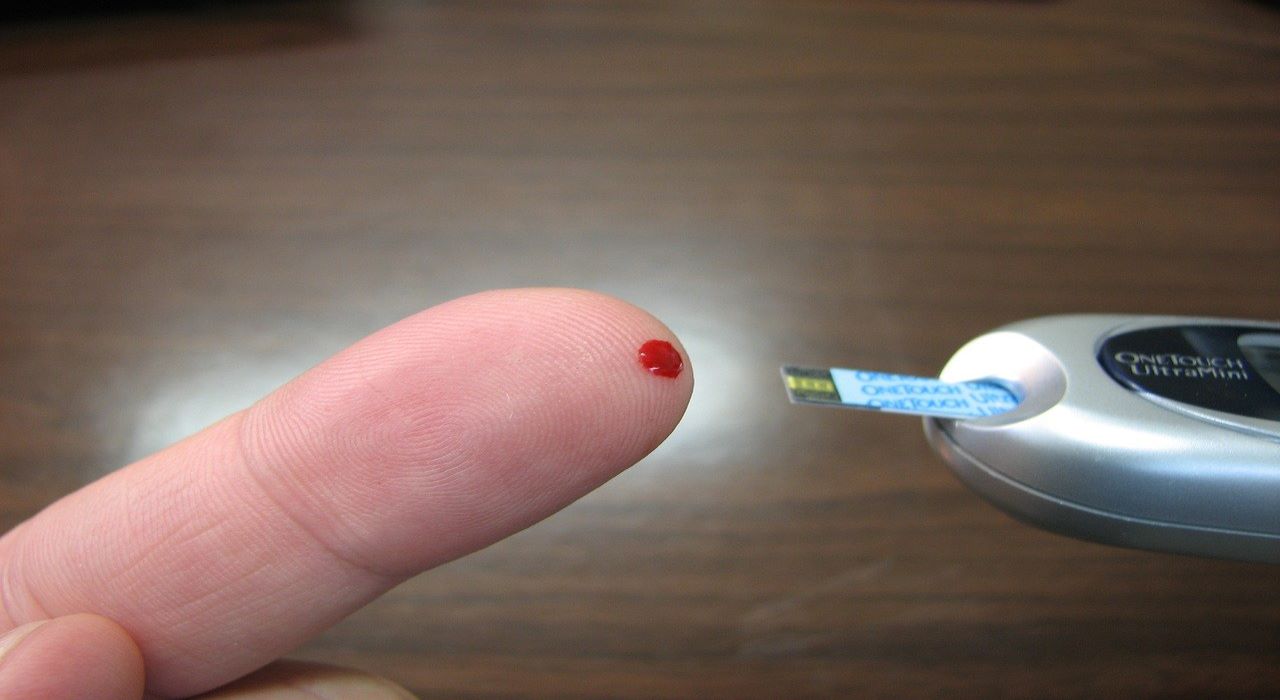Last Updated on July 17, 2024 by Alexander Sennuga
What does diabetes in pregnancy mean in the first place, and how does it occur? Science has all the answers.
It is biologically normal that when a woman becomes pregnant, her sugar metabolism changes. Why so? The effectiveness of insulin will decline due to these two main reasons:
- Maternal hormonal activity
- Increase in body fat
Insulin secreted by the pancreas has to move sugar from the blood to the tissues. This glucose is then available for use as energy.
Due to the inefficient insulin activity during pregnancy, more insulin becomes necessary.
What happens when this extra insulin cannot be produced naturally? The blood sugar of the pregnant woman will rise. This is diabetes in pregnancy, also known as gestational diabetes.
According to experts, about 20% of expectant mothers experience increased blood sugar. Nonetheless, gestational diabetes is controllable with dietary interventions. Furthermore, it usually disappears after pregnancy.
This post will discuss the following:
- Diabetes during pregnancy: symptoms
- Risk factors for diabetes during pregnancy
- What causes diabetes during pregnancy?
- Test for diabetes during pregnancy
- Treatment for diabetes in pregnancy
- Diabetes (type 2 and type 1) after childbirth
Read on…..
Diabetes During Pregnancy Symptoms
Most of the time, gestational diabetes doesn’t cause noticeable signs or symptoms. Increased thirst and more frequent urination are possible symptoms.
When should I see a doctor?
If possible, seek health care early—when you first think about trying to get pregnant—so your healthcare provider can check your risk of gestational diabetes along with your overall wellness. Once you’re pregnant, your healthcare provider will check you for gestational diabetes as part of your prenatal care.
If you develop gestational diabetes, you may need checkups more often. These are most likely to occur during the last three months of pregnancy when your healthcare provider will monitor your blood sugar level and your baby’s health.
Source: [mayoclinic]
What are the risk factors for diabetes during pregnancy?

First, it is appropriate to know what causes diabetes in pregnant women.
Pregnancy exposes women to the following seven situations, according to the Diabetes Association:
- Previous birth of a child over 4.5 pounds
- When a woman is over 40 years of age
- Family history of diabetes
- Record of previous gestational diabetes
- Ovarian polycystic ovary syndrome (PCO)
- Overweight or obesity
- Having sugar in the morning urine
Being overweight puts pregnant women at high risk for gestational diabetes.
What causes gestational diabetes?
When you eat, your pancreas releases insulin, a hormone that helps move a sugar called glucose from your blood to your cells, which use it for energy.
During pregnancy, your placenta makes hormones that cause glucose to build up in your blood. Usually, your pancreas can send out enough insulin to handle it. But if your body can’t make enough insulin or stops using insulin as it should, your blood sugar levels rise, and you get gestational diabetes.
[Source= webmd.com]
Diabetes Test during Pregnancy (Detection)

The usual test carried out on pregnant women is the glucose stress test. It is also known as a glucose tolerance test. Usually, the test is carried out from 24 to 28 weeks of pregnancy. However, for pregnant women with a high risk of gestational diabetes, the test is carried out at 12 to 16 weeks.
Preparations for the test
Two to three days before the testing date, the woman would avoid sugary foods and drinks. Next, she needs to fast for 12 hours before going for the test.
The test process
- In the morning, say 8 – 10 am, the woman’s blood sugar is measured
- Next, she is given 75 grams of glucose (sugar) in a 3 dl solution to drink
- Then, her blood sugar is measured after 1 hour and after 2 hours.
Interpretation of result
Gestational diabetes is diagnosed if at least one of these is found:
- If fasting blood glucose is higher or equal to 5.3 mmol/l,
- Blood sugar 1 hour after taking the sugar solution is 10.0 mmol/l or more, or
- After 2 hours, the sugar solution is equal to or more than 8.6 mmol/l
How to Lower Blood Sugar During Pregnancy

It is not a secret that the well-being of the expectant mother and the arriving baby is paramount. So, the process starts by ensuring that the pregnancy progresses well.
To achieve the intended result, the realistic goals for the woman’s blood sugar levels are the following:
- Less than 5.5 mmol/l before breakfast, and
- Lower than 7.8 mmol/l an hour after a meal
What, then, are the strategies?
Diet therapy
A proper diet can be an effective therapy to treat diabetes during pregnancy.
Some of the best foods to include for this purpose are the following:
- Whole grains
- Berries and fruits
- Low-fat dairy and meat products
- Vegetables
Registered dietitians and/or nutritionists should support this effort. Why? We need to be conscious of the fact that excess calorie consumption is bad for women. She can’t afford to add more weight than necessary during the pregnancy. In addition, her blood sugar must remain under control.
Exercise
In the absence of other health issues other than diabetes, exercise is effective for diabetes during pregnancy. The exercise doesn’t have to be hard-core. Taking a walk or moving around can be enough. The goal is to be able to burn energy faster.
The expectant mother with gestational diabetes requires expert advice on exercise. The reason for this is that the risk of cesarean birth (C-section) is common.
Medication
According to experts, about 15–20% of women with diabetes during pregnancy need medication as therapy. The most common prescriptions are metformin tablets and insulin injections. As indicated earlier, gestational diabetes mostly disappears after pregnancy. So, the use of these prescriptions may also end after childbirth. However, read about this further below.
Proper medical attention is necessary for the treatment of gestational diabetes. The important focus on preventing baby delivery by C-section should not be taken lightly.
Possibility of Diabetes after Childbirth: (Maternal follow-up)

Experts estimate that about 70% of women with gestational diabetes will have this condition. What is it? They will develop type 2 diabetes in the next 10–15 years after pregnancy. Why so? This will happen, especially if they require insulin treatment for the treatment of gestational diabetes.
The risk is highest if they have severe gestational diabetes. Mild cases of gestational diabetes can also lead to type 2 diabetes, to a lesser degree.
Type 1 diabetes also occurs more often than expected in people with diabetes during pregnancy.
How to reduce or prevent the risk
According to experts, as little as 5 kg of weight loss can significantly reduce the risk.
What other steps to take?
The new mother should ensure monitoring of her blood sugar levels this way.
- If a medication was used to treat her gestational diabetes, request a glucose test 6 -12 weeks after childbirth
- But if dietary therapy were the approach, a glucose test after one year of childbirth may be enough.
Indeed, experts recommend that a glucose test be carried out on these people roughly every 3 years.
How To Avoid Diabetes During Pregnancy
Although gestational diabetes is not always avoidable, women can take some steps to help reduce their chances of developing it.
Go into pregnancy at a healthy weight

A woman looking to conceive should make lifestyle choices within her reach and maintain a healthy weight before getting pregnant.
The authors of a 2018 study looked at 10 years of data on gestational diabetes and concluded that being overweight was a significant risk factor.
Another research trusted Source confirms that having a BMI higher than 25 increases a woman’s likelihood of developing gestational diabetes. However, the researchers also noted that making dietary changes reduced the risk.
People looking to lose weight can take steps to modify their diet, such as:
- measuring out smaller portion sizes
- avoiding packaged food and “junk food”
- replacing candy with fruit
- eating more lean protein, such as fish and tofu, to stay fuller for longer
- increasing fiber intake by eating plenty of vegetables and whole grains
- replacing juices, dairy-laden coffee drinks, and sodas with herbal tea, black coffee, or sparkling water with lemon or lime slices
Exercise
Exercise is a vital part of maintaining a healthy weight. Both before and during pregnancy, exercise can help prevent gestational diabetes. Exercise helps the body become more sensitive to the insulin that the pancreas creates, which helps regulate blood sugar levels.
It is a good idea to start getting active before becoming pregnant, even if it means making simple, long-term lifestyle changes. For anyone with a sedentary lifestyle, steps that may help include:
- walking or cycling to work
- parking farther away from the destination and walking the rest of the way
- taking the stairs
- doing active leisure activities, such as hiking, gardening, or playing with children outdoors
- trying yoga, ideally a class specifically for pregnant women or beginners
- doing low-impact exercise, such as swimming
- joining a running club to stay motivated
Anyone looking to prevent gestational diabetes should try to do about 30 minutes of moderate-intensity exercise on 4–5 days of the week. Moderate-intensity exercise should cause a person to break a sweat.
Good cardio options include stationary biking, walking, swimming, and using an elliptical machine.
However, pregnant women should speak to a doctor about any new exercise regimens and discuss which types are safe to do at each stage of pregnancy.
Eat well during pregnancy

During pregnancy, morning sickness, cravings, and food aversions can make it challenging to eat a nutritious diet.
However, eating well can help prevent gestational diabetes and ensure that a woman only gains a healthy amount of weight during each trimester.
Healthful food choices include:
- lean proteins, such as beans, fish, tofu, and white poultry
- healthful fats from nuts, olive oil, coconut oil, and other plant-based fat sources
- whole grains, such as brown rice, pasta, oatmeal, and bread
- low-fat dairy products, such as Greek yoghurt
- nonstarchy vegetables
- fruits
It is best to avoid:
- processed foods
- sugary beverages, including store-bought coffee drinks, energy drinks, juices, and sodas
- extra or added sugar
Attend routine care appointment
A woman should see a gynaecologist regularly during pregnancy for routine care. During these visits, the doctor will ask about the pregnancy and any new symptoms.
They will also do a pelvic exam and use an ultrasound to look at the developing fetus. A doctor may recognise some of the early signs of gestational diabetes and suggest ways to help prevent it.
Between 24 and 28 weeks, a pregnant woman will have a gestational diabetes screening. If the results come back positive for gestational diabetes, the doctor will talk to her about how to prevent further complications.
[Source: medicalnewstoday.com]
Conclusion
Diabetes during pregnancy, also known as gestational diabetes, is a common ailment. Approximately 20% of pregnant women develop high blood sugar. This leads to their being diagnosed with gestational diabetes.
This disease occurs when the pancreas is unable to supply the extra insulin needed during pregnancy. A pregnant woman will gain some weight. So, any increase in weight may result in insulin resistance, hence the need for more insulin.
The diagnosis of gestational diabetes depends on the result of the glucose stress test on the pregnant woman.
Usually, diabetes during pregnancy disappears after childbirth. But, in some cases, it does not. Cases of type 2 or type 1 diabetes after childbirth are common.
Dietary therapies are usually effective in treating diabetes during pregnancy. However, some cases may require medical interventions. In any case, a maternal follow-up must be carried out after childbirth.
In practice, the new mother has to go for a glucose test 6–12 weeks or one year after childbirth. A woman who received insulin or metformin as a remedy for her gestational diabetes has to go after 6–12 weeks.
Where dietary interventions were applied, one year after childbirth was enough. In both cases, a routine glucose test every 2–3 years is really necessary.
FAQ
Q: What is gestational diabetes?
A: Gestational diabetes is a type of diabetes that develops during pregnancy. It affects how your body uses sugar (glucose), leading to high blood sugar levels. Proper management is crucial to avoid complications for both the mother and the baby.
Q: What are the risk factors for gestational diabetes?
A: Several factors can increase the risk of developing gestational diabetes. These include being overweight or obese, having a family history of diabetes, being older than 25 years, having previously given birth to a large baby, and having polycystic ovary syndrome (PCOS).
Q: How is gestational diabetes diagnosed?
A: Gestational diabetes is usually diagnosed through a glucose challenge test. You’ll be asked to drink a sugary solution, and your blood sugar levels will be measured afterward. If the results are higher than normal, a glucose tolerance test may be performed to confirm the diagnosis.
Q: Can gestational diabetes harm my baby?
A: Poorly controlled gestational diabetes can pose risks to the baby. It may increase the baby’s weight, making delivery more difficult. It can also lead to low blood sugar levels (hypoglycemia) in the newborn and increase the risk of developing type 2 diabetes later in life.
Q: How can gestational diabetes be managed?
A: Managing gestational diabetes primarily involves maintaining healthy blood sugar levels. These include following a balanced diet recommended by a healthcare provider, engaging in regular physical activity suitable for pregnant women, and monitoring blood sugar levels regularly. In some cases, insulin or other medications may be prescribed.
Q: Can gestational diabetes be prevented?
A: While it’s not always possible to prevent gestational diabetes, there are steps you can take to reduce the risk. Maintaining a healthy weight before pregnancy, eating a nutritious diet, staying physically active, and attending regular prenatal check-ups can all contribute to a healthy pregnancy and potentially lower the risk of gestational diabetes.
Q: Will gestational diabetes affect future pregnancies?
A: Having gestational diabetes in one pregnancy increases the risk of developing it in future pregnancies. It’s important to monitor blood sugar levels closely and work with your healthcare provider to manage the condition effectively in subsequent pregnancies.
Q: What are the long-term effects of gestational diabetes?
A: Gestational diabetes usually resolves after giving birth. However, women who have gestational diabetes have a higher risk of developing type 2 diabetes later in life. It’s necessary to maintain a healthy lifestyle, including regular exercise and a balanced diet, to reduce the risk of developing diabetes in the future.
Q: Can I breastfeed if I have gestational diabetes?
A: Yes, breastfeeding is encouraged for mothers who have gestational diabetes. It can help regulate blood sugar levels for both the mother and the baby. Breastfeeding offers numerous benefits for both of you, including a reduced risk of obesity and type 2 diabetes.
Q: When should I seek medical help for gestational diabetes?
A: It’s important to work closely with your healthcare provider throughout your pregnancy if you have gestational diabetes. Seek medical help if you experience any concerning symptoms, have difficulty managing your blood sugar levels, or have any questions or concerns about your condition or treatment.
Do you have any other information about diabetes during pregnancy that is not mentioned here? Please share them in the comments section.
Very Important: Please note the following: All the information we provide on this site is for educational purposes only. They are not for medical advice, diagnosis, or treatment. So, please consult with your doctor and/or registered dietitian or nutritionist.
They are the ones to give you professional advice. Hence, do this before applying any of the information about your health issues.

